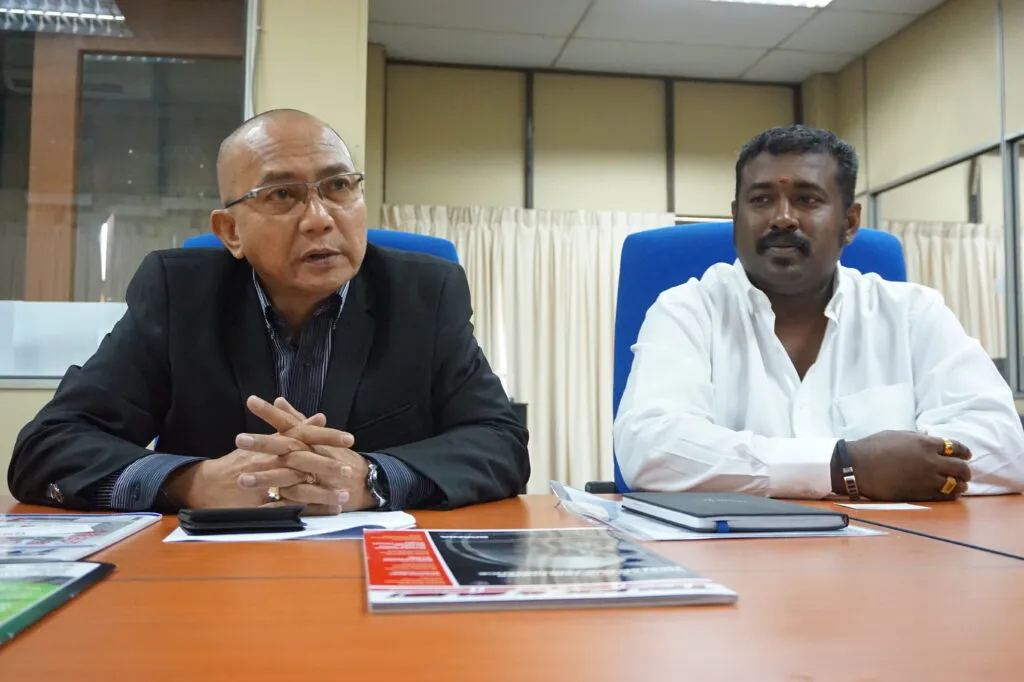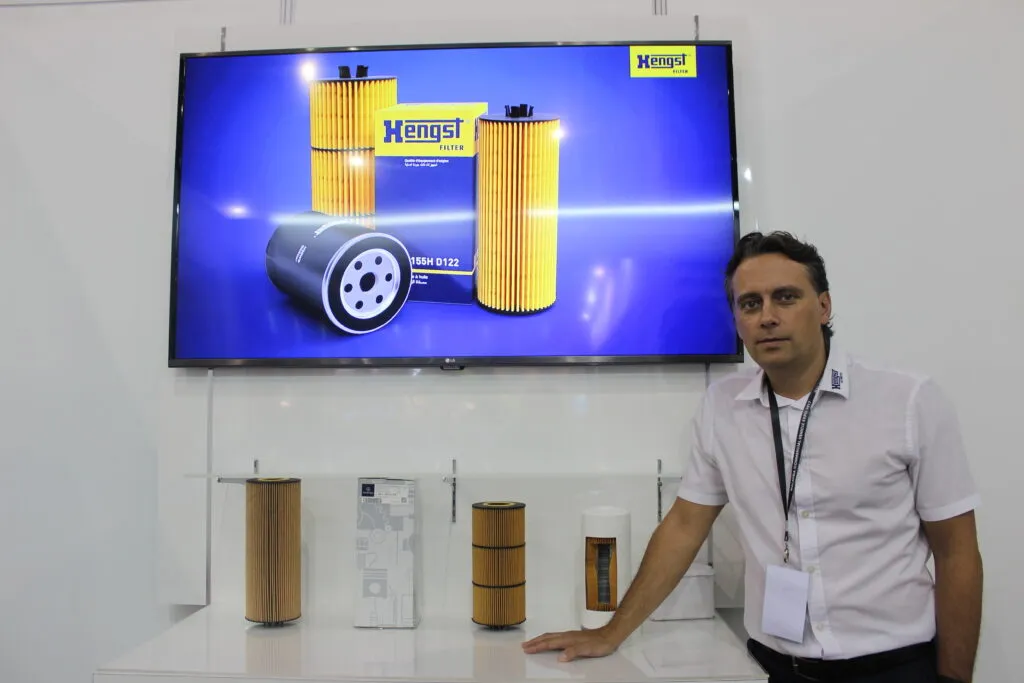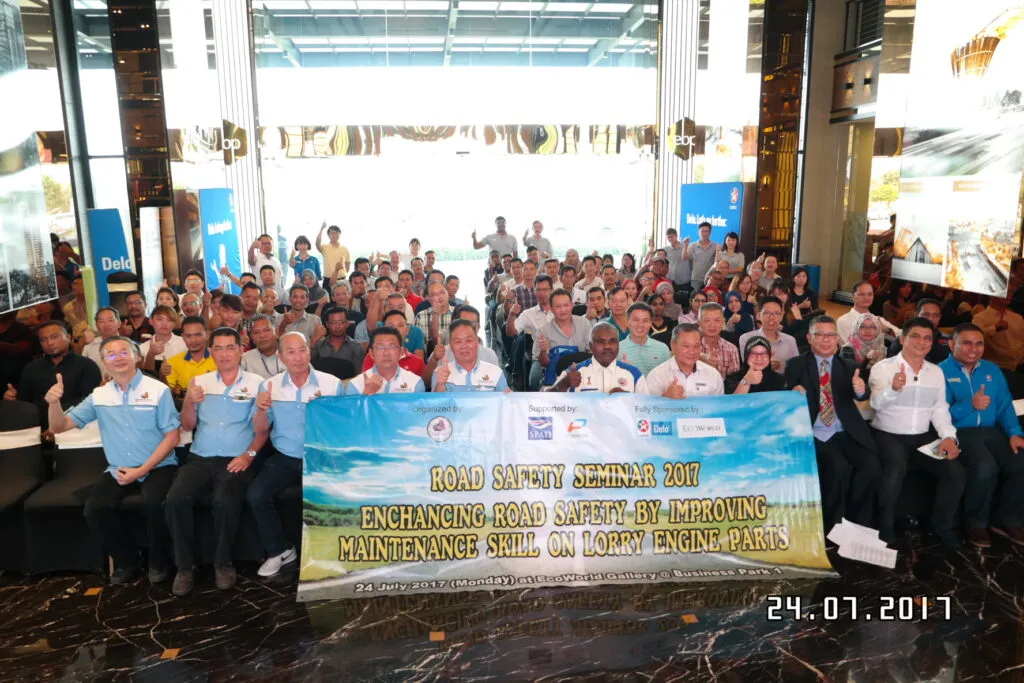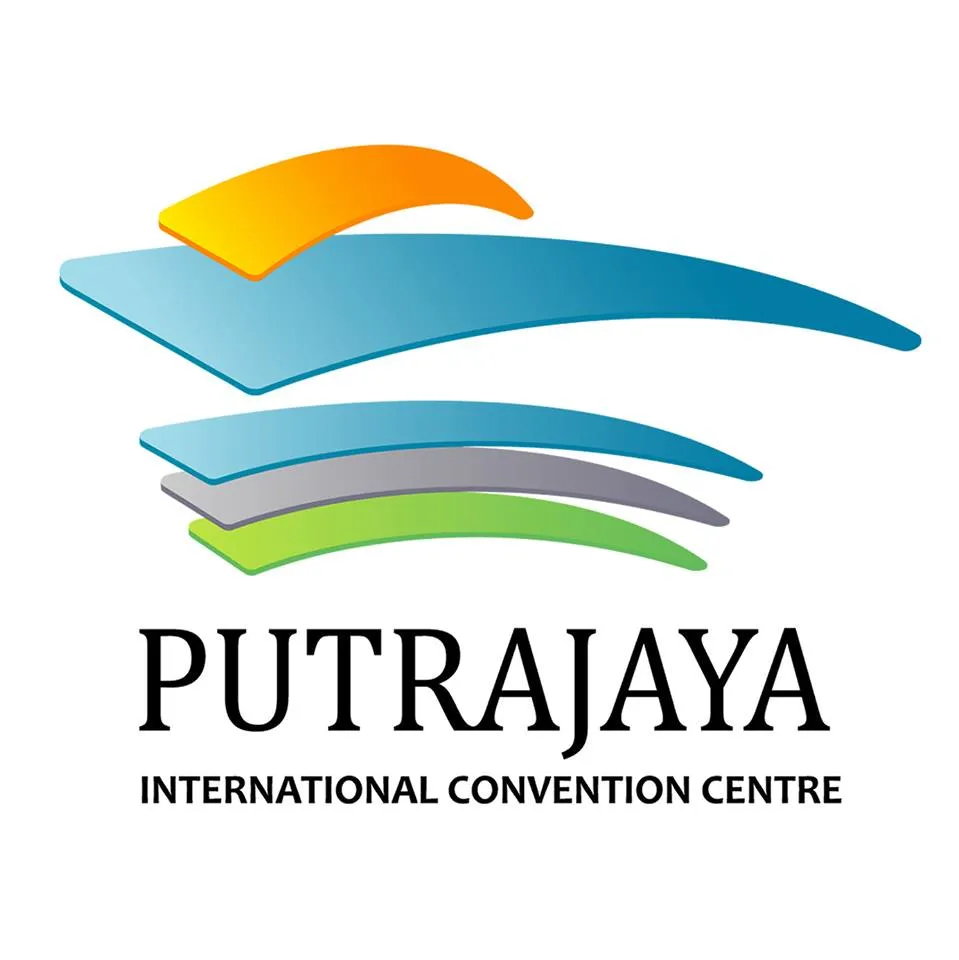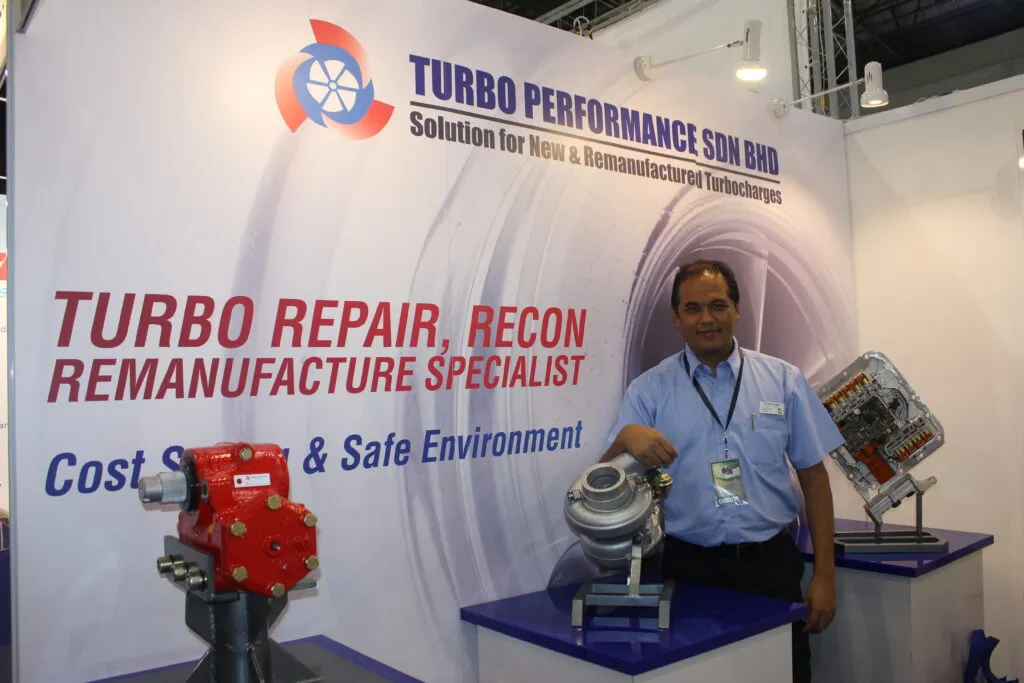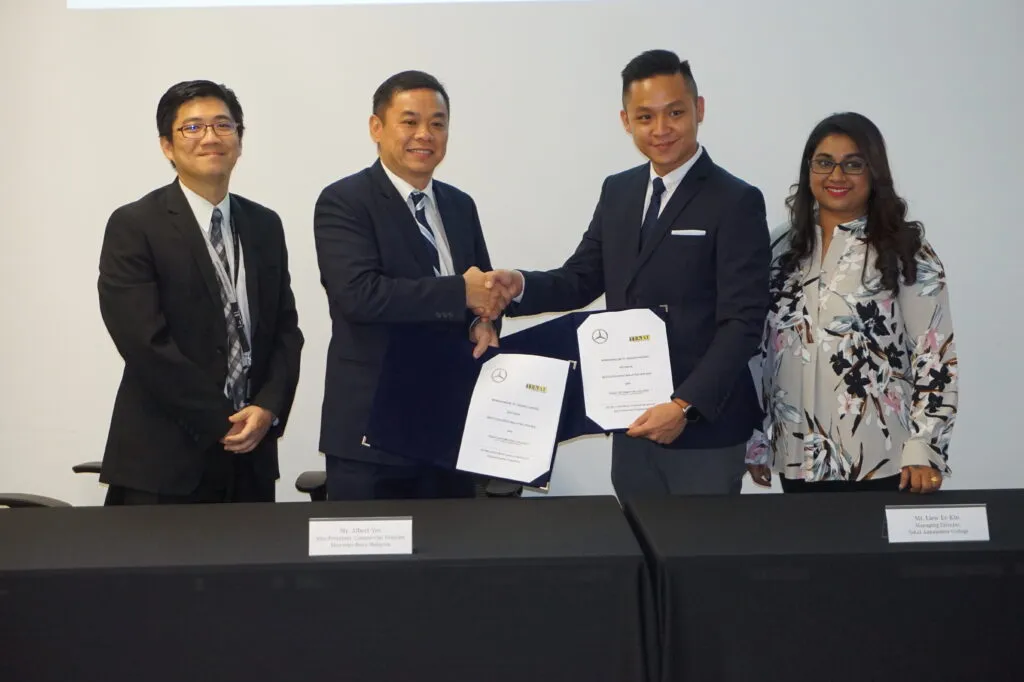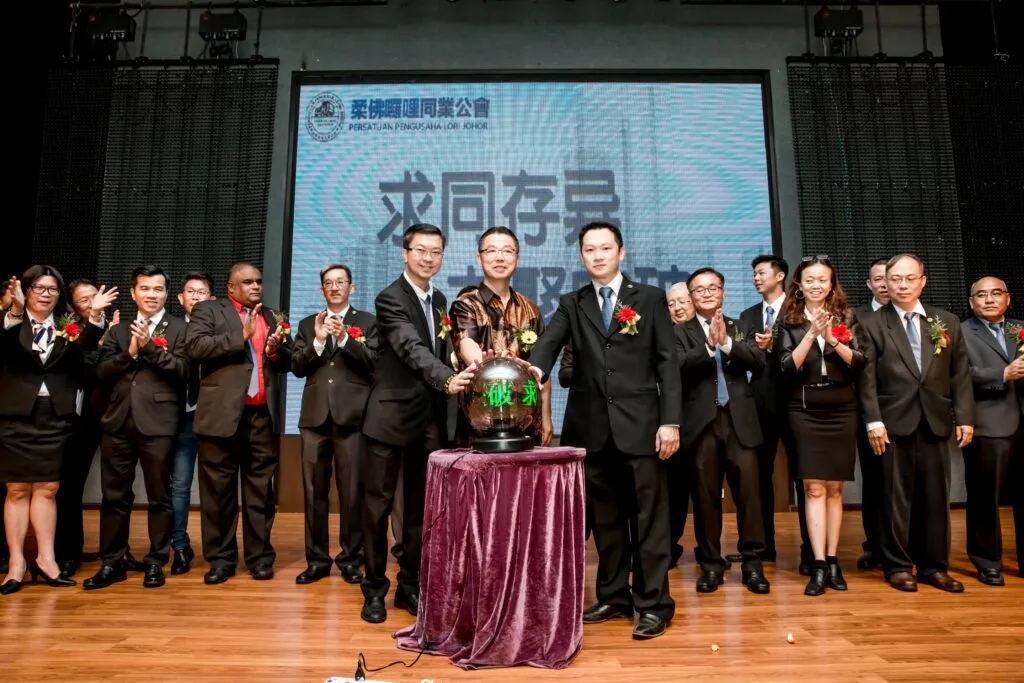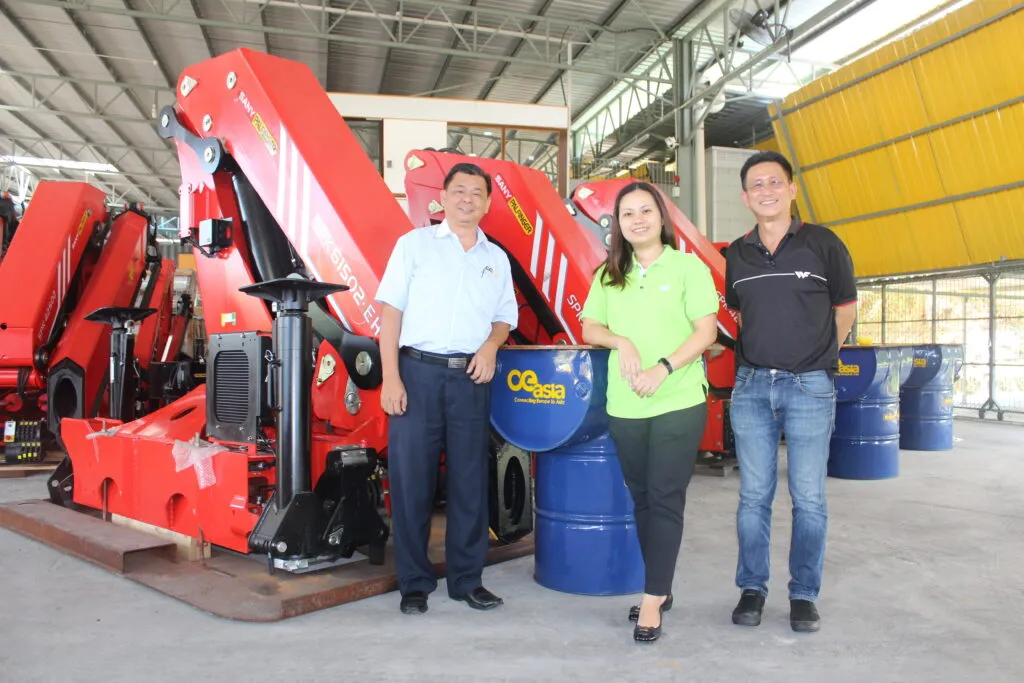The Association of Malaysian Hauliers (AMH) was established in 2002 and has expanded with the growth of the logistics sector in Malaysia. Today the Association has 130 members accounting for 70% of the industry’s capacity.
Exclusive Interview: Nazari HJ Akhbar – Association of Malaysian Hauliers
Truck & Bus News recently had the opportunity to interview Association President Nazari HJ Akhbar, who took over at the head of the Association at the end of 2015. Since his appointment Nazari Hj Akhbar has assured that the AMH remains at the forefront of the haulage industry, fighting for hauliers rights on a national level. We talked to him about some of the key challenges currently being faced by the industry.
Truck & Bus News
It is now nearly two years since you were elected President of the AMH. What are the key issues that the Association is currently having to deal with?
Nazari HJ Akhbar
When I was elected my first task was to get an update and focus on the main issues affecting the industry, which can be split into the following categories – the shortage of drivers, certain issues with container depots, licensing and infrastructure and also the ongoing operational issues.
TBN
Let us talk first about driver shortages, a perennial issue it seems.
NHJA
Yes, we are delighted that the AMH has recently received a grant of RM 1.7 million from the Human Resource Development Fund (HRDF) under the Enhanced Capability Programme for a logistics training programme. The programme is aimed at logistics service providers and is supported by the Ministry of Transport.
This is a significant benefit for the industry because over the years they have been long-standing issues with attracting drivers, this despite the fact they can earn as much RM 7,000 per month. In the past, we have suggested importing foreign workers without success. We have also coordinated and worked hand in hand with JPJ and the Driving Institute to offer 50% discount, but this also didn’t work. Now drivers can be trained FOC. In Johor 2,500 people applied, so our Johor branch did an excellent job in attracting candidates. Overall there are 600 vacancies nationwide that need to be filled. We are now looking at helping to relocate people to the central region where many of the vacancies are.
TBN
AMH has also been involved in promoting infrastructure projects around the port area. What can you tell us about that?
NHJA
The West Port at Klang was built in 1990s. Capacity has expended over time, but the infrastructure has not followed suit. The road has only two lanes, and existing capacity is not enough. The Association has continuously been highlighting this issue during the various Government meetings and forums, and thankfully the Government is agreed on the need for funds for a new highway, upgrading to upgrade the infrastructure for roads leading to the major ports.
We have also proposed the building of a bridge, which will shorten the route from the West Port to the North Port by 12 km. This has also been agreed in concept by the Government and is now with the EPU for their further consideration.
TBN
It is clear that there is a need to assure the effective regulation of depots. How has the AMH become involved in this process?
NHJA
SPAD has been assigned to look into how to regulate the depots, which we welcome, as the AMH wants the government to standardise the operations of depots.
The depot issue is one of the major issues in haulage operations because the speed at which depots operate directly affects the earnings of hauliers. I have direct experience of this as I run a depot myself. Unfortunately, I have to say that some depots tend just to maximise profits, without considering the service efficiency to their customers.
Another major problem with the haulage industry is the issue of overcapacity in the industry. I totally agree that competition is good, but it needs to be healthy competition, and there must be a balance between quality and quantity.
Many haulier companies are finding it difficult to expand because of the undercutting that is taking place in the market. It is also not so easy to merge companies because of issues with licenses (every truck has its own permit). As a result, we want to ask the Government to temporarily stop issuing new licenses and be more stringent whenever new permits are to be issued.
The Association also advices members whenever legal matters are involved. On these the association has appointed a legal firm well versed with the Industry to be our official Legal Advisor.
TBN
How do you view the challenges from overseas hauliers?
NHJA
There are certainly threats and also vice-versa opportunities under the current agreement held between our country and our neighbouring partners under the AFTA and also various other agreements. We can expect countries like Thailand where their labour is cheaper to be a threat. China may also be a threat. In Kuantan they have their own industrial area bringing in their own trucks, people, food and other resources. Trucks are also cheaper. If the Chinese are allowed to set up their own haulage companies then there may be a problem. The question is how many of the Malaysian companies are able to compete with the Chinese? I feel the smaller ones may find it difficult. Thus we need to develop our current existing haulier companies to become bigger players in order to grab the opportunities available overseas.
TBN
What other activities is the AMH engaged in at the moment?
NHJA
We are working with various institutes to try and increase the professionalism of our membership, for example with EP College in the UK. We want to train members to become more professional and to implement courses for drivers. We are also networking extensively with Government Agencies and also private organisations such as ASIL to achieve this noble objective.
The Association will continue to conduct more dialogues, briefing sessions, training and industry related updates to members to ensure the industry becomes more efficient. The Association also plans to spread it wings further through the setting up of new branches at East Coast. I also hope that during my tenure as the President, the Association will eventually operate from its own building.
Finally, the AMH will not only continue to be involved with the various Government and Private formed task forces such as the FGTAB.NLTF, PCC, and many others, but I hope we can even expand our involvement to the global partnership task forces. For information we are already working hand in hand with overseas related association programmes in countries such as Thailand and Indonesia.

